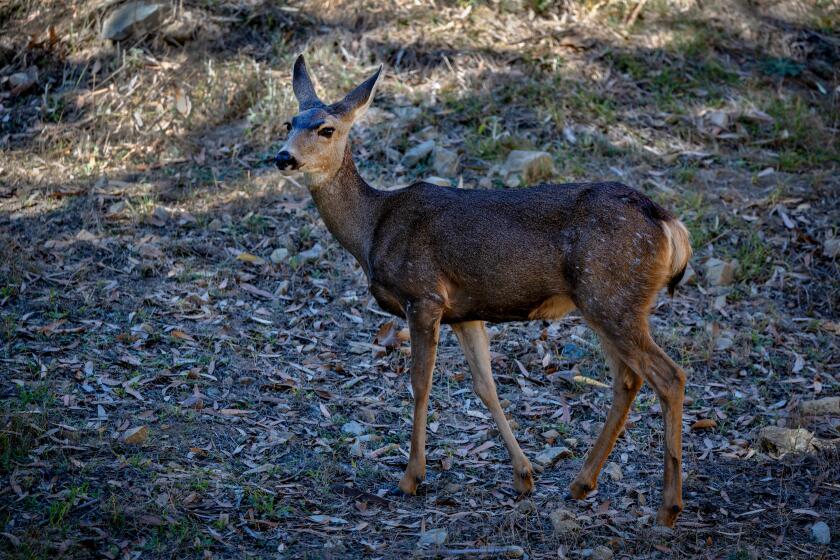Avian Flu Vaccine Is Tested on the Elderly
In a clinical study of an at-risk age group, volunteers 65 and older are lining up this week for an experimental vaccine designed to prevent infection with avian influenza, researchers said Tuesday.
Vaccine experts at the University of Rochester are conducting part of the study, aimed at testing how well the shot prompts antibodies against the virus. The vaccine is based on a bird flu strain isolated from a Vietnamese patient diagnosed with avian influenza last year.
Global health officials have voiced concern because 63 of the 117 people who have contracted the flu since late 2003 in Southeast Asia, the epicenter of the illness, have died. Such a high mortality rate suggests people have few defenses against the flu, which mostly has been passed from birds to humans. If the virus acquires the genetic capacity to spread easily from person to person, the makings of a worldwide pandemic may be at hand.
Last week, birds in Romania and Turkey showed signs of the virus.
Dr. John Treanor, lead investigator of the vaccine study in New York, said conducting tests in older people was critical. Older people are more vulnerable to infection, including seasonal influenza, which claims the lives of 36,000 people annually in the U.S., most of them elderly.
With an infection that could prove swifter and deadlier, it is important to know how well older people will respond to the vaccine and which dose is most appropriate. About 250 older people will be injected with the experimental vaccine.
Scientists were pleased with results of the first round of study earlier this year, Treanor said, which focused on people ages 18 to 64. The National Institute of Allergy and Infectious Diseases, the branch of the federal government overseeing the clinical trials, has plans to test the vaccine in children, but a date has not been announced.
“I don’t want to sound overly optimistic,” Treanor said, “but the basic pathway of how to make a [bird flu] vaccine has been worked out. We know how to make the vaccine.
“But there are still details that are unresolved. And one is how to extend the [vaccine] supply -- how can we make enough of it or use a lower dose.”
More to Read
Start your day right
Sign up for Essential California for news, features and recommendations from the L.A. Times and beyond in your inbox six days a week.
You may occasionally receive promotional content from the Los Angeles Times.






